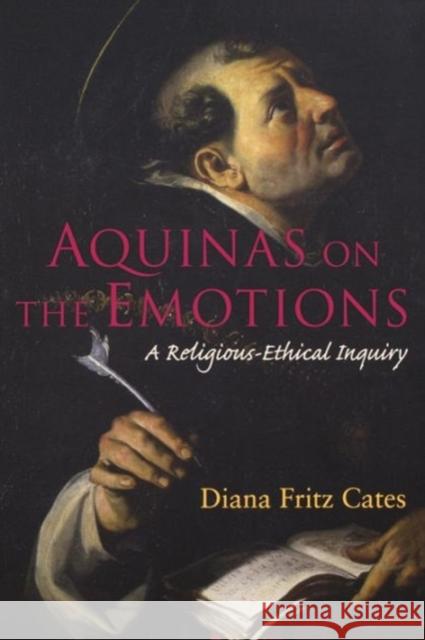Aquinas on the Emotions: A Religious-Ethical Inquiry » książka
Aquinas on the Emotions: A Religious-Ethical Inquiry
ISBN-13: 9781589015050 / Angielski / Miękka / 2009 / 300 str.
All of us want to live happily and live well. Sometimes that happens; sometimes it does not. Why? Why do our emotions swing as they do, making us joyous or brooding or, more typically, somewhere in between? In this book Diana Cates explores the influence of our emotions on our lives, particularly as they relate to our sense of religion and morality. In doing so she demonstrates how Thomas Aquinas' theory of emotions can help us better understand what is at stake. Cates, an ethicist, attempts to show how emotions are composed as mental states; identify the ways in which religious beliefs, intuitions, images, and questions can affect the formation and the course of a person's emotions; and show how Aquinas can instruct readers on the quality of their own emotional lives. She begins by examining the meaning of religious ethics, then discusses what religious ethics can teach us about the relationship between religion and the emotions. In the shank of the book Cates digs deep into the work of Aquinas, retrieving and explicating, demonstrating his approach to emotions and interpreting his work in light of recent studies of emotion from philosophical and ethical sources. The final chapter synthesizes some of the most compelling features of Aquinas' account, highlighting the practical ethical benefits of studying Aquinas on emotions. Such a study challenges us to become more aware of and articulate about understanding the nature of reality--and the ways in which our emotions are tied to that quest.











